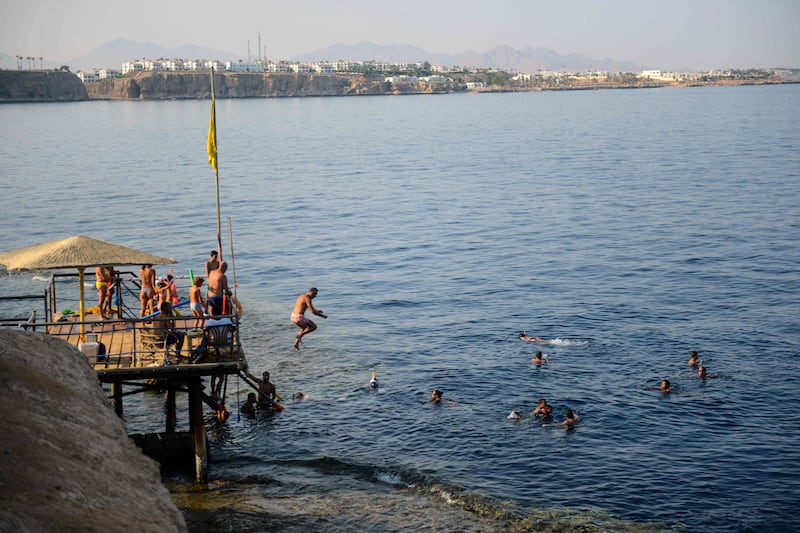Egypt tourism receipts almost tripled and worker remittances rose in the last three months of its fiscal year, marking another step in the country’s economic recovery from a crippling dollar shortage.
Tourism revenue rose to US$1.5 billion in the fourth quarter that ended June 30, from $510 million in the same period a year ago, according to initial central bank data that it shared with Bloomberg. Full-year receipts rose 16 per cent to $4.4bn. Remittances grew 9 per cent to $4.8bn in the fourth quarter, and rose 2 per cent to $17.4bn for the year.
The data is further evidence of a gradual improvement in Egypt’s external finances since November, when authorities embarked on an economic program that included floating the currency and cutting subsidies as a prelude to securing a $12bn IMF loan. The deficit in the current account, which measures incoming and outgoing goods, services and transfers, narrowed 12.4 per cent to $13.2bn in the first nine months of the fiscal year.
“Egypt’s main foreign-currency earners are finally bouncing back, closing in on levels similar to those prevalent before the 2015-2016 crisis,” said Reham El Desoki, a senior economist at the regional investment bank Arqaam Capital.
_______________
Read more:
The top 5 fastest growing tourism destinations for 2017
Egypt to hold auction for oil exploration
Egypt received $40 Billion in foreign investments since currency devaluation
_______________
Egypt’s tourism industry is recovering slowly from a slump caused by the downing of a Russian passenger plane over Sinai in October 2015, which led Russia and other nations to ban flights to the Red Sea resort of Sharm El Sheikh. Tourism employed 773,000 people in 2016, or 2.9 per cent of Egypt’s workforce, according to the World Travel and Tourism Council. The number of people who benefit indirectly from the industry is much higher.
But while revenue is improving, it remains well below the $11.6bn Egypt received in the fiscal year that ended June 30, 2010 - months before the ousting of the president Hosni Mubarak that triggered years of economic and political instability.
The Egyptian pound has lost half of its value since the float in November. That, along with lower subsidies and an increase in value-added taxation, has propelled inflation to more than 30 per cent, squeezing households in a country where about half of the population live below or near the poverty line.
The central bank has raised interest rates 700 basis points, or seven percentage points, since November in an attempt to contain rising consumer prices. The measures helped attract $40bn in investments and transfers from abroad, including receipts from exports and investors selling dollars to buy Egyptian assets, the central bank said last week.






